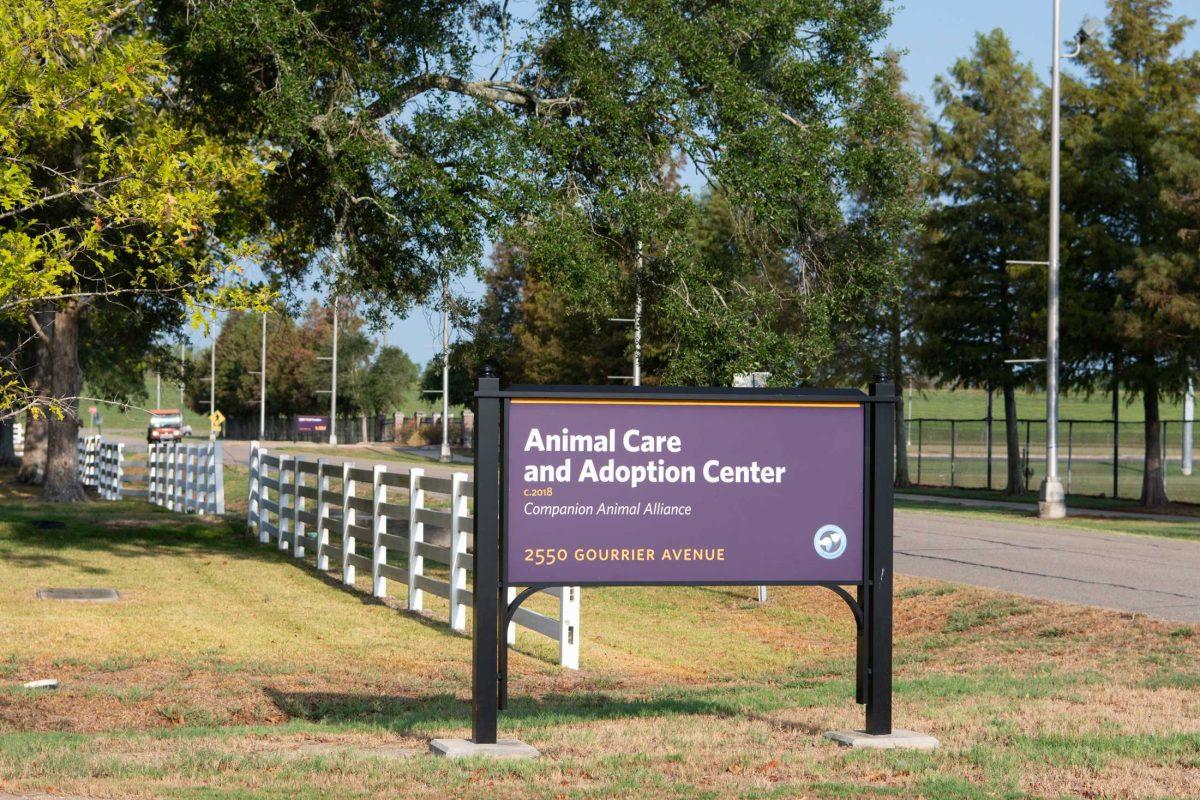Companion Animal Alliance, Baton Rouge’s largest nonprofit animal shelter, has been consistently over capacity this year. Some feel a contributor to this issue is the strict restrictions local apartments place on pet ownership.
CAA is the only open intake shelter in all of East Baton Rouge Parish, according to its website. Last year, the shelter took in over 9,000 animals, and this year, CAA estimates it will match or surpass that number.
With more animals than the shelter can hold, CAA has been forced to keep dogs in pop-up crates and staff offices. At times, staff members have even had to bring the pets home with them.
Capacity-forced euthanasia decisions have been occurring on a weekly basis.
READ MORE: LSU’s student Senate condemns Jeff Landry for skipping gubernatorial forum
Holly Danielson, CAA grants and communications manager, said the biggest reason for animal surrender are owners moving and not being allowed to have pets in their new living space.
“It affects our intake and our outcomes,” said Morgan Talluto, CAA director of development. “You see more animals coming in because they’re moving into housing that doesn’t allow that animal or they’re not going to adopt at that time because they live in an apartment that has a breed restriction, weight restriction or just a limitation altogether.”
Apartments allowing dogs would mean more homes for pets, more potential adoptions and, consequently, more pets kept alive, Danielson said.
“The last thing we want in regard to euthanasia is to have to make those space decisions,” Danielson added. “But we’ve kind of been backed into a corner and we’ve been in that state of having to make those space decisions lately. So, if we had more homes to give dogs to, it would relieve our capacity, I’m sure, immensely.”
177 apartments near LSU aren’t pet friendly, according to data from Apartments.com. And apart from no-dog policies, some apartments have breed, behavior or weight restrictions.
Danielson believes the subjectivity of the breed and aggressiveness of a dog is significant to apartment pet restrictions. Someone could adopt what is seen as a pit bull, but on paper it’s a terrier, Danielson said.
“I would ask them to be more open with their pet policy,” Danielson said. “Some pet policies, it’s my understanding, are outdated as far as aggressive breeds go. I am personally of the philosophy that there’s no such thing as an aggressive breed, only aggressive animals. Aggressive animals are typically a byproduct of poor training. I think if they didn’t have those breed restrictions, we could see more placement of a larger variety of dogs.”
Talluto called the heavy restrictions on weight, behavior and breed “blind blanket discrimination.”
READ MORE: New Black dance organization, Fierce Felines of Rhythem and Roar, takes stage
Often when dogs have increasing levels of fear, anxiety and stress, it’s kennel-related or shelter environment-related, Talluto said. The second they are out of the kennel, they may be totally different dogs.
These pet policy decisions often don’t come down to the property management or landowner, it comes down to the insurance companies dictating what will be covered. In many cases that includes heavy restrictions. If a more inclusive policy is purchased it’s likely much more expensive which leads to higher cost for the resident, only reshaping the issue, Talluto said.
“What I would ask of students is to read your lease, to know your pet policy before you sign it and before you adopt an animal,” Talluto said. “Consider your pets. If you are signing a new lease and that pet cannot go with you, have a plan in place. Don’t wait for the day before to surrender your animal.”
CAA has taken in more dogs every year since 2019, with the exception of 2020. In 2022, it took in 500 more dogs than it did in 2019. Despite this, the staff has managed to improve its save rate by 14% since 2018.
While Baton Rouge has seen an improvement in new dog parks and pet-friendly workplaces, restaurants and bars, housing has remained a stagnant issue.
Bissell Pet Foundation, a partner of CAA, encourages dog lovers to reach out to talk to local officials, policy makers, legislators and corporations to help keep dogs with their families: “If enough people raise a red flag, lawmakers will listen,” reads its website.









